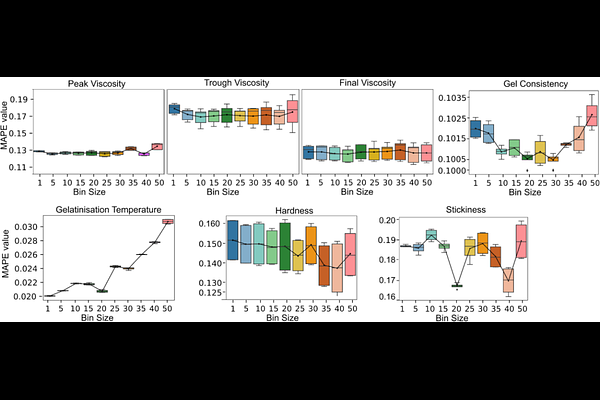Structure-property machine learning models with predictive capabilities for glycans in food

Structure-property machine learning models with predictive capabilities for glycans in food
Naravane, T.; Simmons, G.
AbstractStructure-property predictive models for food aim to decipher the complex relation between the physical shape of a molecule and its physical properties and/or the functional role of the molecule in a product formulation. Our focus in this paper is the modeling of glycans (i.e., carbohydrates), which are not only abundant in food, but essential to both food production and, more importantly, human health. In our study, we use regression methods to generalize the relationships between the structure of starch (e.g., chain length and composition of protein and amylose) and a range of its properties (e.g., gelatinization temperature, time series viscosity data, gel consistency, and sensory texture) for 301 samples of rice. Our results indicate that the structure-composition data is a significantly better predictor of sensory mouthfeel than the physical properties, even though the latter is typically used in experimental research. This demonstrates the potential to harness several structure-property relationships and we provide strategies to accelerate further experiment-based research.